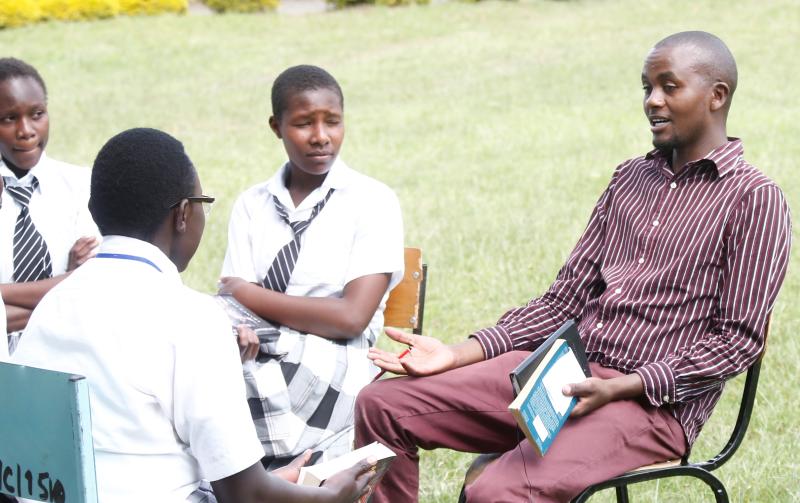×
The Standard e-Paper
Smart Minds Choose Us

Lack of self-esteem and poor communication skills among learners inspired teacher Gatundu Macharia, to establish a book club.
Macharia, a teacher at Ogilgei Secondary School in Rongai Sub-county, Nakuru County, says students could hardly socialise with their peers, neither could they express themselves in class, and this adversely affected their academic performance.